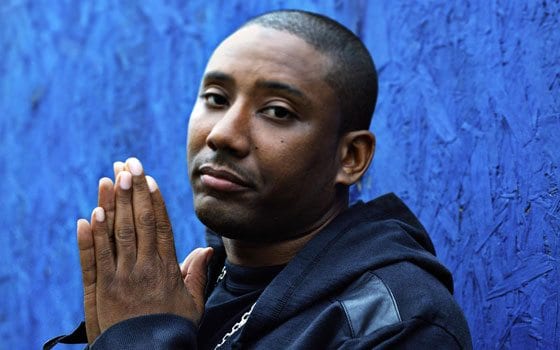
By most accounts Jermaine Coleman shouldn’t even be here. A few days after the release of his latest album, “The Day After Tomorrow,” Coleman, better known to hip hop fans as Maino, greeted a line of fans waiting patiently in the South End sneaker boutique Laced for a chance to take his picture and receive an autograph. After growing up around and surviving the drugs and violence of his native Brooklyn, a sea of eager and smiling faces is a welcome addition to his life. Dealing with fans instead of the streets was all part of his plan.
“I came home from jail with this hairbrained scheme to get away from the street,” Coleman said. “I didn’t look at rap with vanity. I wasn’t like, ‘I am going, to be the biggest or dopest artist.’ I was like ‘Let’s use this to get away from our environment. Let’s use this to escape that.’ ”
Escaping the streets wasn’t easy. Growing up in a household where drugs were prevalent didn’t leave him with many options. And starting his rap career after a nearly 10-year prison bid, the Brooklyn native didn’t seem the most likely to succeed.
But what may have separated Maino from his mix tape brethren is his work ethic. He built his buzz on New York’s mix tape circuit into his first club hit “Hi Hater” and a debut album “If Tomorrow Never Comes.”
But how was he able to stand out from the crowded pack of MCs without any major cosigns? What did he have that forced him to stand out?
For Maino the difference was in the music.
“At the end of the day, it came down to making hot songs, not just being able to make a hot 48 bars,” Coleman said. “A lot of times guys couldn’t figure that part out — how to go from the mix tapes to now go pro. I think that was always one of my strong points. I was a songwriter.”
The result of his work was a string of hit singles that included the Just Blaze-produced and T-Pain-assisted platinum single, “All The Above.”
But minus a couple of dust ups — the most famous being his run in with rapper Yung Berg — he, unlike many of his peers, has steered clear of headline grabbing arrests.
“I had to let certain things go or else I would stay stuck,” Coleman said. “Stuck in this ideology that ‘they ain’t real and I am.’ ”
“That’s not being smart. That’s not being a business man. That ain’t gangsta. Gangsta to me is smart. Smart is the new gangsta. Gangsta to me is being able to transition your environment.”






